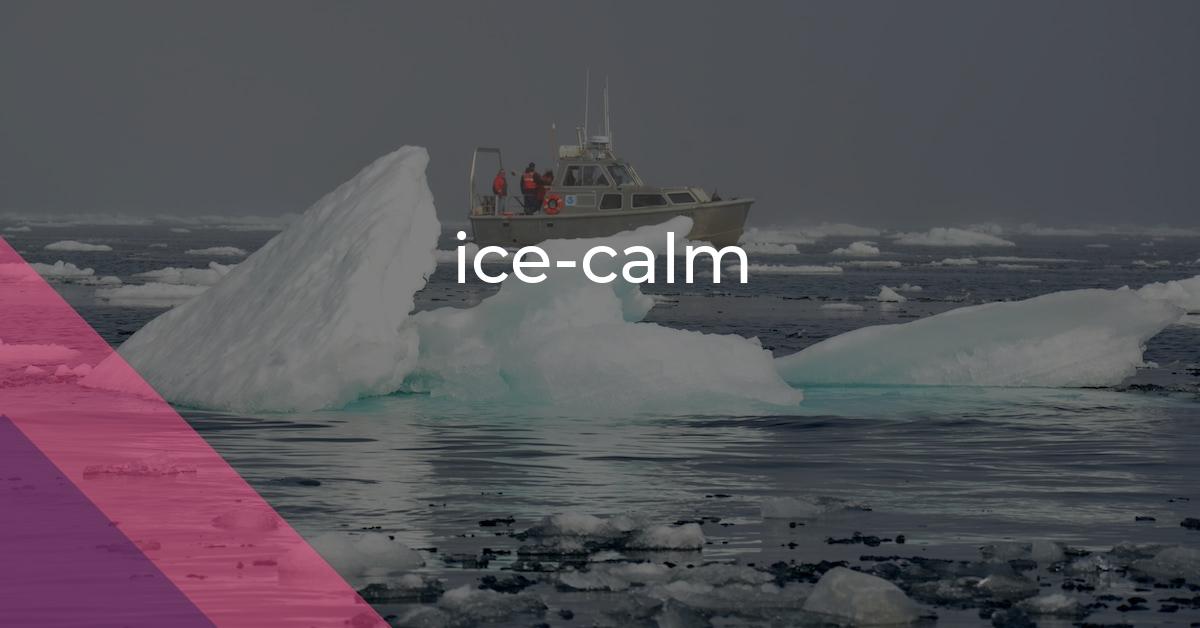ice-calm: Idiom Meaning and Origin
What does ‘ice-calm’ mean?
The idiom "ice-calm" means to be extremely calm and composed in a difficult or tense situation.

Idiom Explorer
The idiom "play it cool" means to remain calm and composed in a situation, especially when feeling nervous or under pressure. It involves maintaining a nonchalant or unaffected attitude to hide one's true emotions or intentions.
An idiom used to describe someone who is in an emotional or mental state of extreme agitation, distress, or confusion.
The idiom "ice queen" refers to a woman who is perceived as cold, detached, and unemotional, often controlling her emotions and interactions with others. This term is typically used to describe someone who is aloof, distant, or unapproachable in social or professional settings.
The idiom "ice maiden" refers to a person, typically a woman, who appears very cold and unemotional, lacking warmth and empathy in their interactions with others.
The idiom "ice cool" means to remain calm and composed, especially in situations that may provoke anger or anxiety. It reflects a state of emotional detachment and control, similar to the coolness of ice.
The idiom "hold one's peace" means to remain silent or refrain from speaking, especially when it is important or expected to do so.
The idiom "hold it together" means to remain composed or maintain self-control in a difficult or challenging situation.
The idiom "heart of stone" refers to someone who is emotionally cold and unfeeling, lacking compassion or empathy.
The idiom "get a grip" means to take control of one’s emotions or behavior, regain composure, or regain control over a situation.
Decoding the Enigma
The idiom "ice-calm" is a commonly used phrase in the English language. It refers to a state of extreme calmness or composure, even in challenging or stressful situations. The term "ice cool" is a related idiom that conveys a similar meaning. It describes someone who remains calm and collected, like ice, even when faced with difficult circumstances. Both idioms emphasize the importance of maintaining a cool and composed demeanor, regardless of the situation.
One might use the idiom "ice cool" to describe someone who manages to stay calm and collected during a heated argument. Instead of getting worked up or responding in a confrontational manner, this person remains composed and reasoned. They are able to think clearly and maintain control over their emotions, just like ice remains solid and unwavering even in intense heat. This ability to stay "ice cool" can diffuse tense situations and help find a rational resolution.
Another related idiom is "play it cool." This phrase is often used to encourage someone to remain calm and collected, especially in situations where they might feel nervous or under pressure. It suggests that acting nonchalant and composed can give the impression of confidence and self-assurance. Similar to "ice-calm," "playing it cool" involves maintaining a cool and collected exterior, even if one may be feeling anxious or uncertain internally. This idiom can be applied in various contexts, such as job interviews or social gatherings.
The idiom "even keel" is another phrase related to "ice-calm." This expression refers to maintaining a steady and balanced emotional state, regardless of external circumstances. Just like a ship with an even keel remains stable and steady, individuals who possess this quality are able to navigate through life's ups and downs without being easily swayed by emotions. They can weather storms and stay composed, much like ice-calm individuals. This idiom is often used to describe someone who remains calm and level-headed in the face of adversity.
When it comes to staying calm and composed, the idiom "hold one's nerve" can also be applied. This phrase emphasizes the importance of keeping one's composure and not succumbing to fear or anxiety. Individuals who can "hold their nerve" are able to stay calm and collected even in high-pressure situations. They do not let their emotions get the best of them and are able to make rational decisions. This ability to remain composed under stress is similar to the concept of being "ice-calm."
Lastly, the idiom "eye of the storm" is related to "ice-calm." This expression refers to the calm and peaceful center of a storm, where everything is still and quiet despite the chaos surrounding it. Likewise, individuals who possess the quality of being "ice-calm" are able to find peace and tranquility within themselves even during turbulent times. They are able to stay composed and centered, providing a sense of stability and reassurance to those around them.
Overall, the idiom "ice-calm" is a widely recognized phrase that conveys the idea of maintaining composure and calmness in difficult or stressful situations. It is related to idioms such as "ice cool," "play it cool," "even keel," "hold one's nerve," and "eye of the storm," all of which emphasize the importance of remaining calm and composed, regardless of the circumstances. These idioms highlight the admirable qualities of self-control, emotional detachment, and the ability to navigate through challenges with grace and poise.
Example usage
Examples:
1. After the accident, the driver remained ice-calm and called for help.
2. Despite facing a lot of criticism, she remained ice-calm and calmly answered all the questions.
3. The team captain remained ice-calm even in the face of a last-minute goal by the opposing team.
More "Emotion" idioms



